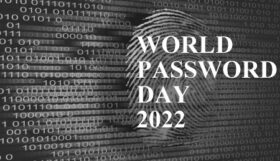Online Tracking of Children Legislation
 Senate bill s1700-113, “Safeguards Against Tracking Children Online” is currently being considered in the U.S. Senate. The bill is intended to ban online tracking of children. In the bill the definition of a child is between the ages of 12 and 16 years of age. But the legislation currently being debated is very similar to rules laid out by the FTC in 2013.
Senate bill s1700-113, “Safeguards Against Tracking Children Online” is currently being considered in the U.S. Senate. The bill is intended to ban online tracking of children. In the bill the definition of a child is between the ages of 12 and 16 years of age. But the legislation currently being debated is very similar to rules laid out by the FTC in 2013.
The bill is intended to prohibit corporations, marketers and other web entities from collecting personal information for marketing purposes from children and minors using web or mobile applications. The bill also establishes additional privacy protections against collecting personal or geographic location information from children and minors. The 2013 FTC rules also covered web and mobile apps.
According to a 201o Wall Street Journal report websites that attract children and teens use cookies and other tracking instruments more than sites aimed at adults. The WSJ studied 50 popular U.S. websites for children and teens. It was discovered that these sites installed 4,123 cookies, beacons, and other tracking tools on the simulated child’s computer used for the test. That is 30% higher than tools used to track adults.
According to Common Sense Media and the Center for Digital Democracy over 90% of adults surveyed did not believe it was okay for advertisers to collect information about a child’s location from that child’s mobile phone.
Just a year ago the Federal Trade Commission released new and tougher rules designed to limit tracking of children online. The new rules stopped the collection of personal information for children under 13. The FTC rules also banned tracking a child’s physical location and the collection of photos, videos and audio files. Also banned was behavioral advertising aimed at children without parental notice and re-targeting of ads based on the child’s browser history.
After the release of the new rules in 2013 Jeffrey Chester of the Centre for Digital Democracy said, “This is an important victory for privacy rights on the Internet.” The Centre for Digital Democracy spent four years lobbying for the new rules.
“There is no more secret tracking or behavioral tracking,” Chester says.
The 2013 rule changes were applauded by many public health and consumer and digital rights groups. Also endorsing the new rules were the American Academy of Child and Adolescent Psychiatry, the Consumers Union and the Center for Science in the Public Interest.
The current Senate bill was introduced in November of 2013
Breaking It Down
First of all let me say this to black parents; don’t let a computer or tablet babysit your child! What you just read was that companies have been collecting information about your child and, in a round about way, information about you. If a child answers a simple question such as what school they attend a marketer can quickly discern your income and other data. Did you read the part where some marketers had collected pictures, location and audio recordings of children? We have to protect our children from the onslaught of marketers who will stop at nothing to advertise to children. Why are they advertising to children? Because the earlier in life a child begins to associate with a product the more likely they will become lifelong customers. Because advertising to children creates demand for products. Because advertising to children creates profiles in data bases in some company’s computers. And those profiles tell the marketer where to advertise to that child now, where as they get older and maybe for the rest of their life. Because children are not old enough to understand the connection between online games and entertainment and product affiliation and thus are being manipulated. Advertisers have no mercy and few scruples. For example, have you noticed how many new fruit flavored beers and liquors are being advertised? These people are advertising to teens! Get them associated with some new apple flavored ale early and they will be customers for life. Clothes, cars, fast food, alcohol, technology, whatever it is . The marketers job is to get into your child’s head early.






